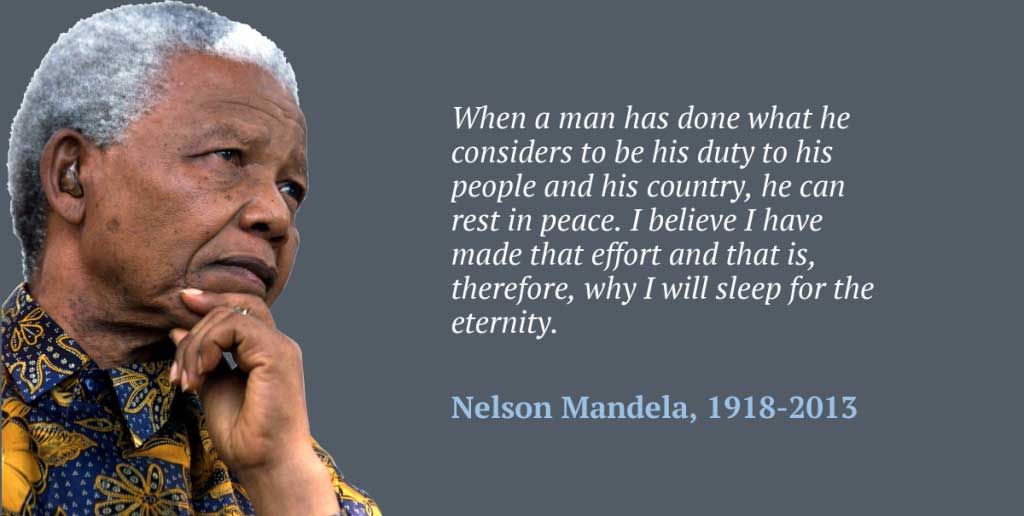Nelson Mandela is buried, an exemplary life well-lived and rewarded with worldwide accolades that I have never seen or heard about in my life.
When even Newt Gingrich bit back at his own rabid conservative base, who criticized him for praising a “communist” rebel who tried to overthrow his government, you know something had to be great about Mandela. His defense of the great freedom fighter made me realize just how powerful a symbol Mandela was for humanity.
Newt tried to remind his history-challenged fellow conservatives about the original Tea Partiers in Boston, who destroyed cargo on British ships and later fought their British masters in a revolutionary war that created the “America” that modern-day Tea Partiers want “to take back” (from whom, I’d like to know).
If fighting tyranny and oppression was a right and noble cause 240 years ago in America, Newt questioned, why not in South Africa, which was dominated by a foreign White minority that exercised racially-demeaning, systematically brutal control over an overwhelming population of Black natives. For daring to oppose this apartheid government — even with force and allies that, yes, included communists — Mandela spent 27 years in prison. And when human rights activists, and then world leaders, insisted that Mandela be released, the political prisoner took the extraordinary step of leaving in his old jail cell the bitterness and anger that should rightly come after a long and unjust imprisonment. With this powerfully transformative attitude, he forged a relatively peaceful transition from apartheid to an American-styled democracy, elected as South Africa’s first Black president for one term.
This is why the world rightly stopped to pay homage to Madiba (Mandela’s tribal name) when he died at age 95.
His life story and legacy is nothing short of amazing. What’s even more amazing to me is that Mandela, while in prison, was encouraged to stay the course when he heard about the U.S. civil rights movement, the Second American Revolution, particularly the 1963 “battlefield” in Birmingham, where even children took to the street for their freedom and went to jail.
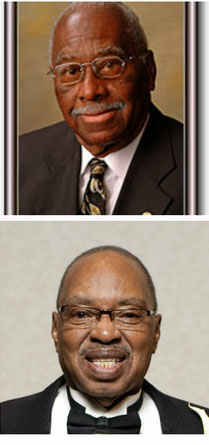 Other soldiers in this American revolution included lesser-known lights who died this year include Demetrius Newton and W.L. Williams. They were among the handful of committed African American lawyers who filed civil rights lawsuits and won landmark cases regarding integration of schools and public spaces. They represented civil rights icons like Dr. Martin Luther King, Jr., and Rev. Fred Shuttlesworth, as well as other brave men and women who stood up against racial inequality and injustice.
Other soldiers in this American revolution included lesser-known lights who died this year include Demetrius Newton and W.L. Williams. They were among the handful of committed African American lawyers who filed civil rights lawsuits and won landmark cases regarding integration of schools and public spaces. They represented civil rights icons like Dr. Martin Luther King, Jr., and Rev. Fred Shuttlesworth, as well as other brave men and women who stood up against racial inequality and injustice.
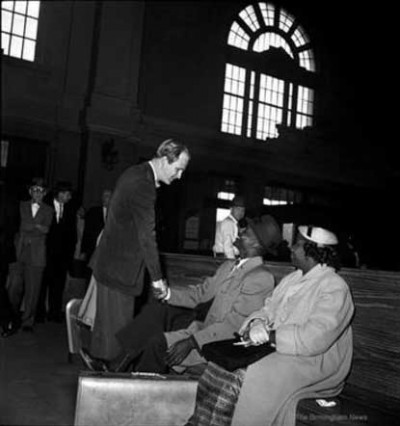
Photo by Robert Adams from the “Unseen” Civil Rights photo series of The Birmingham News, al.com/unseen..
Another was Lamar Weaver, a lay church leader and activist whose simple act of human kindness nearly cost him his life. He shook hands and spoke with Rev. Shuttlesworth and his wife Ruby as they sat in the White section of Terminal Station, waiting to catch a train to Atlanta. An incensed White mob, who watched the friendly meeting between this White man and this Black couple openly defying Jim Crow and White supremacy, attacked Weaver as he left the station. Were it not for workers at a Black funeral home hiding him in one of their caskets to smuggle him out of Birmingham, Weaver might have been killed.
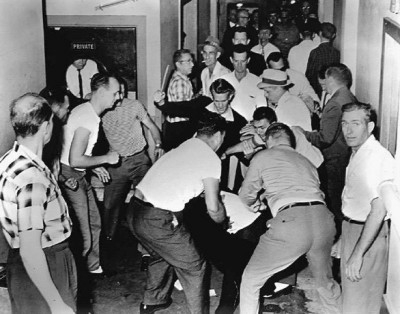
Birmingham Post-Herald’s Tommy Langston photo used courtesy of the Birmingham Public Library Archives Department.
Birmingham Post-Herald photographer Tommy Langston shot the picture that changed Birmingham probably didn’t see himself on the frontline of the revolution, but he was. He snapped the defining picture of a mob viciously attacking an inter-racial group of Freedom Riders at a Birmingham bus station on Mother’s Day May 1961. The mob attacked him too and thought they had destroyed his camera and its film. But the picture survived, was splashed on pages around the world, and forced embarrassed city leaders to quietly change the form of government that eventually ousted Police Commissioner Eugene “Bull” Connor.
Other civil and human rights leaders and workers, men and women, well-known and unknown, passed away this year. And with each passing, they take a piece of this powerful, transformative era with them.
Dead and gone, their legacy, with Mandela’s, live on for us to study about and learn from in the pages of history and in the lives of those whom they touched.
So, what is the next frontier in human and civil rights? One that appears clear to me is economic opportunity and an end to debilitating inequality.
For in the country that Mandela led magnificently, there is a large swath of South Africans who still live in grinding poverty in a sea of affluence, like Dr. King described years ago in his “Letter from Birmingham Jail.” Where once prosperity flourished, this situation is becoming true again in even “civilized” parts of the world, including our own country, as people grapple with today’s worldwide recession.
At the heart of this condition is what Pope Francis aptly described as a “naive” belief in trickle-down economic theories and a love of money rather than people:
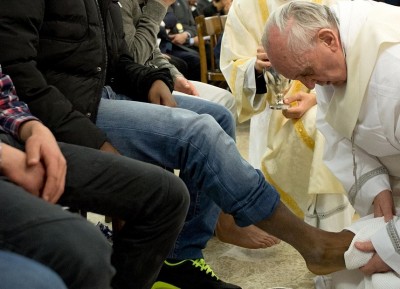
Just as the commandment “Thou shalt not kill” sets a clear limit in order to safeguard the value of human life, today we also have to say “thou shalt not” to an economy of exclusion and inequality.
Such an economy kills. How can it be that it is not a news item when an elderly homeless person dies of exposure, but it is news when the stock market loses two points? This is a case of exclusion. Can we continue to stand by when food is thrown away while people are starving? This is a case of inequality. Today everything comes under the laws of competition and the survival of the fittest, where the powerful feed upon the powerless. As a consequence, masses of people find themselves excluded and marginalized: without work, without possibilities, without any means of escape.. . . . The culture of prosperity deadens us; we are thrilled if the market offers us something new to purchase. In the meantime all those lives stunted for lack of opportunity seem a mere spectacle; they fail to move us.
As any good Christian should know, every human enterprise should be done for the benefit of mankind and the glory of God. Businesses exist because they fill needs or create convenience for people to live more productive lives. But when businesses become people (as decided by the U.S. Supreme Court in Citizens United) and people become things, expendable for the sake of profit, well, problems follow.
The last time this situation flourished in this country, people of moral strength and character mobilized to stop child labor, increase worker protections, bust up monopolies, made price fixing and collision illegal, prevent the super rich from controlling governments, curtail toxic waste dumping that caused health disorders, and crusade for the civil rights of oppressed minorities, even when it cost them their own lives.
As the year draws to a close and the holiday season reminds us of goodwill to humanity, I hope we make up our minds to stand for what is noble, pure, righteous, fair and beneficial to our neighbors as well as ourselves. It takes courage sometimes to stand up for these things.
The next Nelson Mandela, Demetrius Newton, W.L. Williams, Lamar Weaver and Tommy Langston are already out there (I’m sure quite a few of them are powerful women too!). When we see them, let’s give them our support, in whatever way works for you, because fighting the good fight is not easy. But it’s worth it, for us all.

